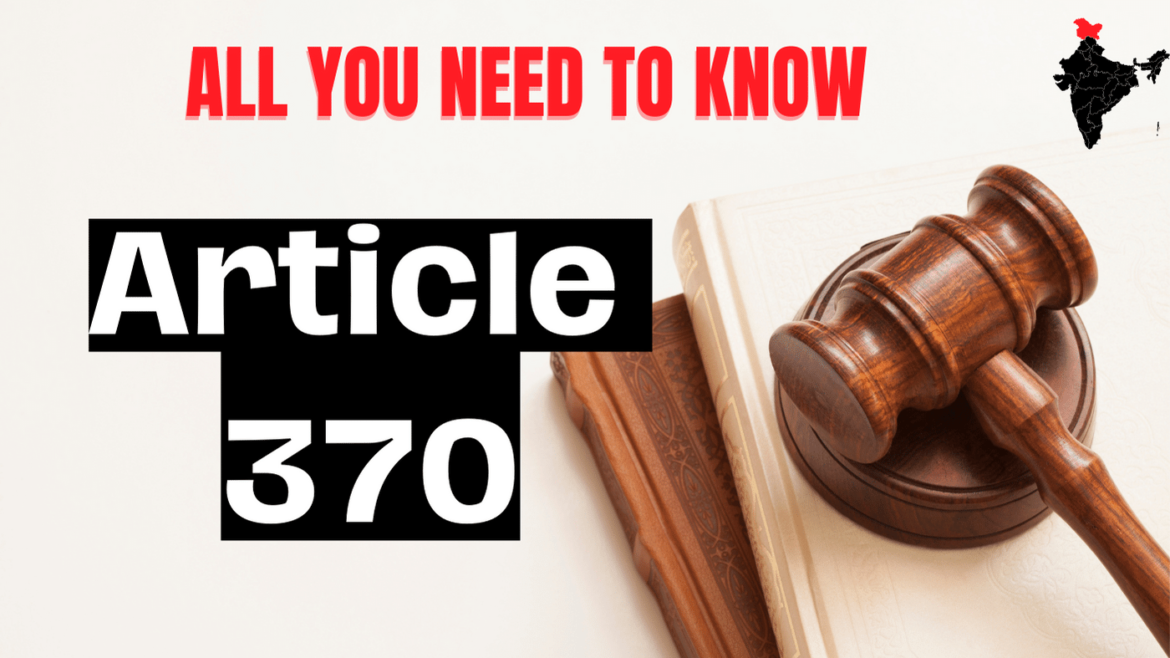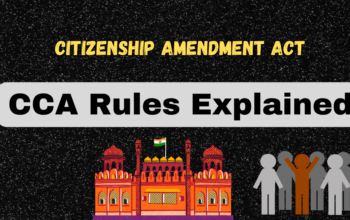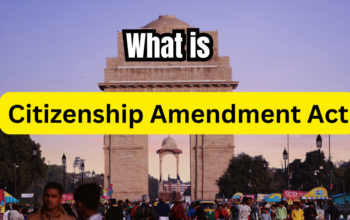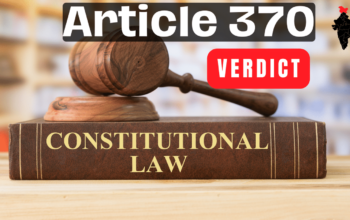Article 370 of the Constitution of India is a special provision that grants autonomy to the region of Jammu and Kashmir. Enshrined in Part XXI of the Constitution, this article has been a subject of considerable debate and controversy since its inception. Its roots lie in the historical context of the accession of princely states to the newly independent India in 1947.
In Short:
Here’s a breakdown of its key points:
1. Special Status:
- Defined a special relationship between Jammu and Kashmir and the rest of India.
- Allowed the state to have its own constitution alongside the Indian Constitution.
- Granted autonomy in various matters, including:
- Internal administration
- Law and order
- Citizenship
- Property ownership
2. Limited Application of Indian Laws:
- Only the provisions of the Indian Constitution explicitly mentioned in the Instrument of Accession applied to Jammu and Kashmir.
- The Indian Parliament could not extend its laws to the state without the concurrence of the state government.
3. Temporary Provision:
- Described as a temporary provision subject to future modifications.
- Meant to facilitate the state’s integration into India while respecting its unique identity.
4. Revoked in 2019:
- Through a Presidential Order in August 2019, the central government revoked Article 370.
- This decision was met with widespread protests and legal challenges.
5. Ongoing legal disputes:
- The legality of the revocation is being challenged in the Supreme Court.
- The final verdict is still pending.
Background:
At the time of India’s independence, the princely state of Jammu and Kashmir, like others, had the option to accede to either India or Pakistan. The then Maharaja Hari Singh chose to accede to India, leading to the incorporation of Jammu and Kashmir into the Indian Union. However, recognizing the unique circumstances of this accession, Article 370 was incorporated into the Constitution to provide a special status to the state.
Provisions of Article 370:
Article 370 confers a temporary and transitional special status to Jammu and Kashmir, allowing the state to have its own Constitution and autonomy over internal matters. The provisions of the Indian Constitution are not applied to the state unless the President issues an order specifying the articles that should be applicable. As a result, Jammu and Kashmir enjoyed a high degree of autonomy, with its own flag and a separate set of laws.
Evolution of Article 370:
Over the years, several modifications were made to Article 370 through presidential orders, altering the extent of autonomy granted to Jammu and Kashmir. These changes were often made in consultation with the state government. However, the erosion of Article 370’s autonomy became a point of contention, with critics arguing that it hindered the integration of Jammu and Kashmir with the rest of India.
Abrogation of Article 370: In a historic move, the Government of India, on August 5, 2019, abrogated Article 370 through a presidential order and a subsequent resolution passed by both houses of Parliament. The special status of Jammu and Kashmir was revoked, and the region was reorganized into two separate union territories – Jammu & Kashmir and Ladakh.
Controversies and Debates:
The abrogation of Article 370 sparked intense debates and reactions. Supporters argue that it was a necessary step to integrate Jammu and Kashmir fully into the Indian Union, promoting equality and development. Critics, on the other hand, contend that it undermined the special status guaranteed to the state and violated the principles of federalism.
Conclusion:
Article 370, once a symbol of the unique circumstances surrounding the accession of Jammu and Kashmir, has undergone a significant transformation. Its abrogation marked a pivotal moment in Indian history, with far-reaching implications for the political, legal, and social landscape of the region. The debate surrounding Article 370 continues to shape discussions on federalism, autonomy, and the relationship between the Union and its constituent states in the diverse tapestry of the Indian legal system.



